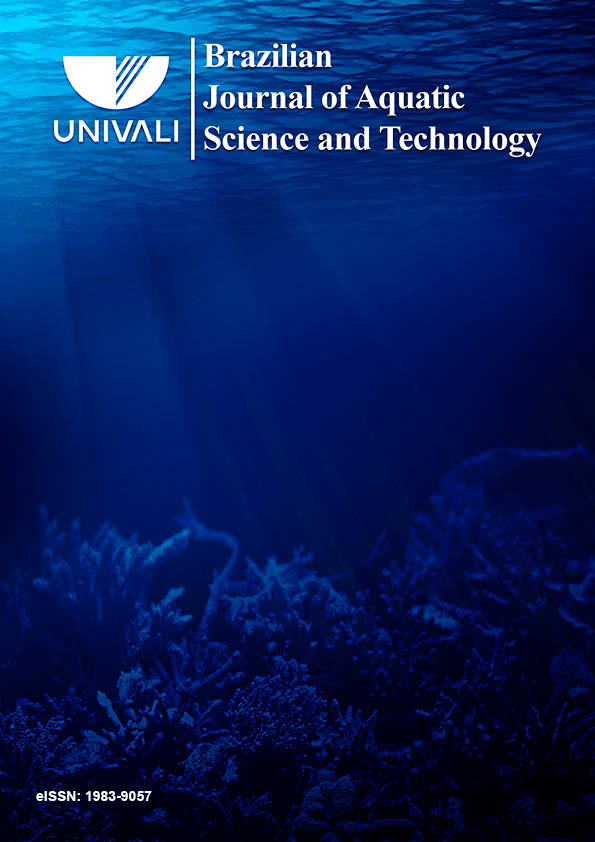Influence of rainfall on physical, cheminal and biological parameters in washouts on the coast of Paraná state, Brazil
DOI:
https://doi.org/10.14210/bjast.v20n2.7843Abstract
Reduction in precipitation, and consequently fresh water, can affect the food loop and the time necessary for an increase in nutrients and contaminants in coastal and estuarine ecosystems. The combined effect of human development and reduction in river flow can degrade water quality, negatively affecting the fishery and human health. The objective of the present research was the study of the water quality (temperature, salinity, alkalinity, carbon dioxide, dissolved oxygen, phosphate, silicate, nitrate, nitrite, ammonium, humic substances, suspended particulate material, particulate organic matter, chlorophyll-a, total coliforms and Escherichia coli), of two washouts (Barranco and Olho d’Água) located in the municipality of Pontal do Paraná (Pontal do Paraná, Brazil), comparing them in periods of lower and higher rainfall. The results showed that during the rainy period, there was an increase in nitrite, suspended particulate material, particulate organic matter, and a decrease in nitrate and chlorophyll-a in the two washouts. An increase in phosphate, ammonium and humic substances were only observed in Barranco; whereas an increase in dissolved oxygen and E. coli were only observed in Olho d’Água. These results showed that larger quantities of nutrients are exported to the adjacent continental shelf in high rainfall periods.
Downloads
Published
Issue
Section
License
Authors who publish with this journal agree to the following terms:
1. Authors retain copyright and grant the journal right of first publication with the work simultaneously licensed under a Creative Commons Attribution License that allows others to share the work with an acknowledgement of the work's authorship and initial publication in this journal.
2. Authors are able to enter into separate, additional contractual arrangements for the non-exclusive distribution of the journal's published version of the work (e.g., post it to an institutional repository or publish it in a book), with an acknowledgement of its initial publication in this journal.
3. Authors are permitted and encouraged to post their work online (e.g., in institutional repositories or on their website) prior to and during the submission process, as it can lead to productive exchanges, as well as earlier and greater citation of published work (See The Effect of Open Access).

